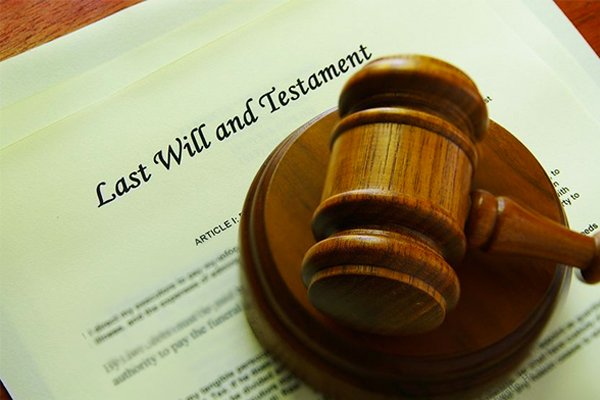Property Probate Sales Solicitors in Dublin
Blanchardstown, Castleknock, Dublin City Centre
Buying or selling property in probate in Dublin or Ireland?
Selling as an Executor? Can you sell before Probate is granted? Can you sell a joint property where one owner has died?
At Carmody Moran Solicitors our experienced property solicitor team is at hand to guide you through the property probate sale in Dublin process.
Property probate sales can be quicker and easier. For purchasers of a probate sale property, the property is generally empty and as such a purchase of this nature often has the advantage of being the end of ‘the chain’.
On the flip side, the Executor sometimes has limited knowledge of the property sometimes only having had the time of the probate to get familiar with the property and some of their answers to ordinarily basic information can be limited.
The length of time from going sale agreed to getting your keys can seem like the third secret of Fatima!
Carmody Moran Solicitors suggest an early consultation with our conveyancing solicitors as soon as your contracts for sale arrive to review together all of the documentation available and put answers to all of these questions.
The sale of a property where a loved one has passed away can be a tough decision to make. Family members may not all be in agreement and it can be a difficult position for the Executor to make to sell the property.
Role of the Executor
The Executor often wants to be respectful to all of the family but then only the Executor faces the stress of maintaining an often empty property, worrying about vandals or burst pipes, paying the outgoings and taxes, and insuring the property.
We advise an early consultation with one of our experienced property solicitors before putting the house on the market to review what documents are available, as it is not uncommon for title deeds to be mislaid or lost, and how best to proceed to ensure the transaction goes as smoothly and stress-free as possible.
Generally speaking and subject to legal advice on your particular situation unless there is a surviving joint owner a Grant of Probate or a Grant of Administration Intestate must be applied for and granted before a sale of a property can complete.
Selling a property before probate is granted
You can sell before probate is granted and property can be sold while the application for the Grant of Probate is pending and the closing date linked to its issue, but early legal and specific legal advice is recommended in such circumstances.
We have had cases of helping Executors who are resident abroad to sell properties in Ireland and helping them sell quickly. With emails, fax, and overnight secure deliveries the world is a much smaller place within which to do business.
It is advisable to obtain Probate at the earliest opportunity in order to avoid any potential delays.
Where matters are urgent Probate can be obtained in a matter of weeks when a property is sale agreed.
A telephone call with one of our experienced solicitors can answer your questions to discussed the process and estimated timescales and an early consultation before progressing too far in the transaction can greatly ease the transaction and help it proceed in a smooth and straightforward manner.
Probate Dublin, Ireland: Understanding What It Is
What is Probate Dublin?
Probate is a legal process in Dublin, Ireland, and involves administering a deceased person’s estate. A Grant of Representation, which grants the executor or administrator the power to manage the decedent’s financial and legal affairs, is often required to do this. The executor designated in the will is in charge of managing the estate if there is one. An administrator is chosen if neither an executor nor a will were present. If there is a disagreement over who has the right to administer the estate, the Probate Registrar may be engaged in the decision-making process.
In addition to paying any taxes owed and distributing the estate’s assets to the beneficiaries, the responsibilities of the executor and administrator also include paying the deceased’s obligations and finding and appraising their assets. If the estate is complicated, it is advisable to consult a lawyer. In Ireland, probate administration is the responsibility of the High Court’s Probate Office.
Understanding Probate Process and Terms
The judicial process for managing a bereaved person’s estate is called probate. It involves the verification of the deceased person’s will and the distribution of their assets to their heirs. In Dublin, Ireland, the Probate Office of the High Court is responsible for administering probate.
If you are dealing with probate in Dublin, Ireland, it’s essential to understand the process and the terms associated with it. Here are some of the key terms you should be familiar with:
Executor
An executor is a person named in the deceased person’s will who is responsible for administering their estate. If there is no executor named in the will or the executor is unable to act, an administrator is appointed.
Administrator
An administrator is a person appointed by the court to administer the estate when there is no executor named in the will or when the named executor is unable to act.
Grant of Representation
A Grant of Representation is a legal document that gives the executor or administrator the authority to administer the estate. It is issued by the Probate Office of the High Court.
Will
A will is a legal document that outlines the deceased person’s wishes for the distribution of their assets after their death.
Intestate
A person is considered to have died intestate if they pass away without a legally binding will.
Letters of Administration
Letters of Administration is a legal document that gives the administrator the authority to administer the estate when there is no will.
Probate Registry
The Probate Registry is a court that handles applications for Grants of Representation.
Now that you have an understanding of the key terms associated with probate in Dublin, Ireland, it’s essential to understand the process itself.
Probate Process in Dublin, Ireland
The probate process in Dublin, Ireland involves the following steps:
Obtain a death certificate
The first step in the probate process is to obtain a death certificate. This certificate is necessary to prove the person has passed away.
Locate the will
If the deceased person left a will, it must be located. The executor named in the will is responsible for administering the estate.
Apply for a Grant of Representation
The executor or administrator must apply for a Grant of Representation from the Probate Registry. This document gives them the authority to administer the estate.
Pay debts and taxes
Before any assets can be distributed, the executor or administrator must pay any outstanding debts and taxes.
Distribute assets
Once all debts and taxes have been paid, the executor or administrator can distribute the assets according to the deceased person’s wishes.
Is Probate always needed in Dublin, Ireland
Probate is not always required in Dublin, Ireland. Depending on the deceased’s assets and how they were handled, a Grant of Probate may or may not be required. If the deceased and another person jointly owned property, that property will transfer to the remaining co-owner without the need to extract a Grant of Probate, a different legal conveyancing process generally suffices.
The bank may distribute monies to the next of kin without the requirement for Probate if the deceased had limited assets, such as a bank account (generally less than €25,000) and a process of indemnities suffices. Again certain paperwork is required, but not necessarily the extraction of a Grant of Probate, this depends upon the combined total of assets, however. Accordingly, an early consultation with a specialist probate solicitor will assist you in determining the correct pathway forward.
Probate will be necessary to transfer assets
Probate will be necessary to transfer those assets to the beneficiaries if the deceased owned any assets in their own name, such as property, stocks or shares, or larger quantities of money. Whether or not Probate is necessary will depend on the size of the estate. In Ireland, probate is often necessary if the estate is worth more than €25,000. It is usually advisable to speak with an expert probate lawyer to ascertain whether Probate is necessary for a particular circumstance.
How long does probate take in Dublin, Ireland
A solicitor or other legal expert will frequently be consulted for guidance or assistance in the probate procedure because it can be time-consuming and complicated and carries a significant degree of risk if errors are made in the process.
The intricacy of the estate, the presence or absence of conflicts, and the speed with which the executor or administrator performs their obligations all affect how long probate takes in Dublin, Ireland. In Ireland, the probate procedure usually takes six to twelve months to complete.
The procedure might, however, take longer if there are issues, such as a disagreement over the will or challenges in discovering and appraising assets identifying assets, or obtaining information regarding the estate or the beneficiaries. It is significant to remember that each probate case is distinct, and the time frame may change depending on the specific circumstances of each matter.
Call our Blanchardstown office on 00-353-1-8272888 to make an appointment to meet and discuss property probate sale in Dublin further with our property solicitors or use the quick enquiry form here.

PROPERTY LAW / CONVEYANCING
Please look to our conveyancing practice areas to find the solution for your particular need.
Buying a New Property >
Buying a Secondhand Property >
Selling & Buying at Same Time >
Frequently Asked Questions FAQs on Probate Sales in Dublin, Ireland
What is Probate Dublin, Ireland?
The legal procedure known as “probate” in Dublin or anywhere in Ireland entails managing a deceased’s inheritance. It is the formal proof of the will’s legality and it gives formal legal powers to the Executor or Administrator of the Estate to deal with the Estate.
When is Probate in Dublin or Ireland necessary?
When a person in Dublin, Ireland, dies possessed of assets or property in their name, probate is required. Probate essentially ratifies or legally proves the Will or compliance with the laws of Intestacy to enable an Estate be administered.
Who is in charge of Probate in Dublin or Ireland?
The High Court’s Probate Office in Dublin, Ireland, is in charge of managing probate. The estate is managed by the executor designated in the will; if neither was selected nor if there is no will, an administrator is chosen to manage the estate.
How long does Probate take in Dublin, Ireland?
Depending on the intricacy of the estate, the process of obtaining probate in Dublin, Ireland might take anywhere from six to twelve months.
How much does Probate Dublin and Ireland cost?
Depending on the complexities of the estate, the cost of probate in Dublin, Ireland might be anywhere between 1% and 5% of the overall estate value.
Can Probate in Dublin, Ireland be avoided?
If the assets were held in shared ownership or if the estate’s overall worth was below a certain amount, Probate in Dublin, Ireland may occasionally be avoided. To legally transfer ownership of the assets to the beneficiaries, however, probate is typically required.
What happens if there is no will in Dublin, Ireland?
In Dublin, Ireland, the rules of intestacy govern the distribution of an estate in the absence of a will. The inheritance will be distributed in accordance with the intestacy laws established by the court, which may or may not reflect the preferences of the deceased.
Can a will be contested during Probate in Dublin, Ireland?
Indeed, a will may be challenged throughout the Dublin, Ireland, probate process. A person may challenge a will in court if they feel that it is invalid or that they were unfairly left out of it.
What happens to debts during Probate in Dublin, Ireland?
The executor or administrator is accountable for paying any unpaid obligations the deceased may have incurred during probate in Dublin, Ireland, before distributing the remaining assets to the beneficiaries.
What happens to assets that are jointly owned in Dublin, Ireland?
In Dublin, Ireland, when a joint owner dies, the jointly held property passes to the remaining joint owner(s) and does not require probate. To transfer property held jointly an application is required to the Land Registry.
Your Expert Property Probate Sales Legal Team in Blanchardstown
At Carmody Moran Solicitors in Blanchardstown our experienced property and conveyancing solicitors are on hand to advise and skilled in handling all nature of property probate sale in Dublin.
The two partners of Carmody Moran Solicitors in Blanchardstown have a combined total of in excess of twenty-five years professional legal experience. Together with their associates, they aim to make the Court process as straightforward and navigable as possible while being on hand to alleviate their clients’ concerns and worries about going through the Court process.
Anthony Carmody
Anthony Carmody is one of the founding Partners of Carmody Moran Solicitors.
He has significant experience in personal injury cases and general litigation having handled literally thousands of cases on behalf of clients based in Ireland and abroad.
Niamh Moran
Partner
Niamh Moran is one of the founding partners of Carmody Moran Solicitors and is a solicitor with wide ranging experience across all areas of general practice.
Niamh manages the family law, conveyancing in Dublin, and probate divisions of the practice. Niamh’s practice of law is extremely varied and she is regularly sought out for her expertise by clients and colleagues alike.
*While we have made every effort to provide accurate information, the law is always changing and it affects each person differently. This information is not a substitute for specific advice about you personally and it is not intended as legal advice. We will not be liable to you if you rely on this information. In contentious business, a solicitor may not calculate fees or other charges as a percentage or proportion of any award or settlement. This statement is made in compliance with Reg.8 of SI 518 of 2002.
You should note that no solicitor/client relationship or duty of care or liability of any nature shall exist or be deemed to exist between Carmody Moran Solicitors and you until you have received a written letter of engagement from us in which we confirm our appointment as your Solicitors.
INDEPENDENT GOOGLE CLIENT REVIEWS

